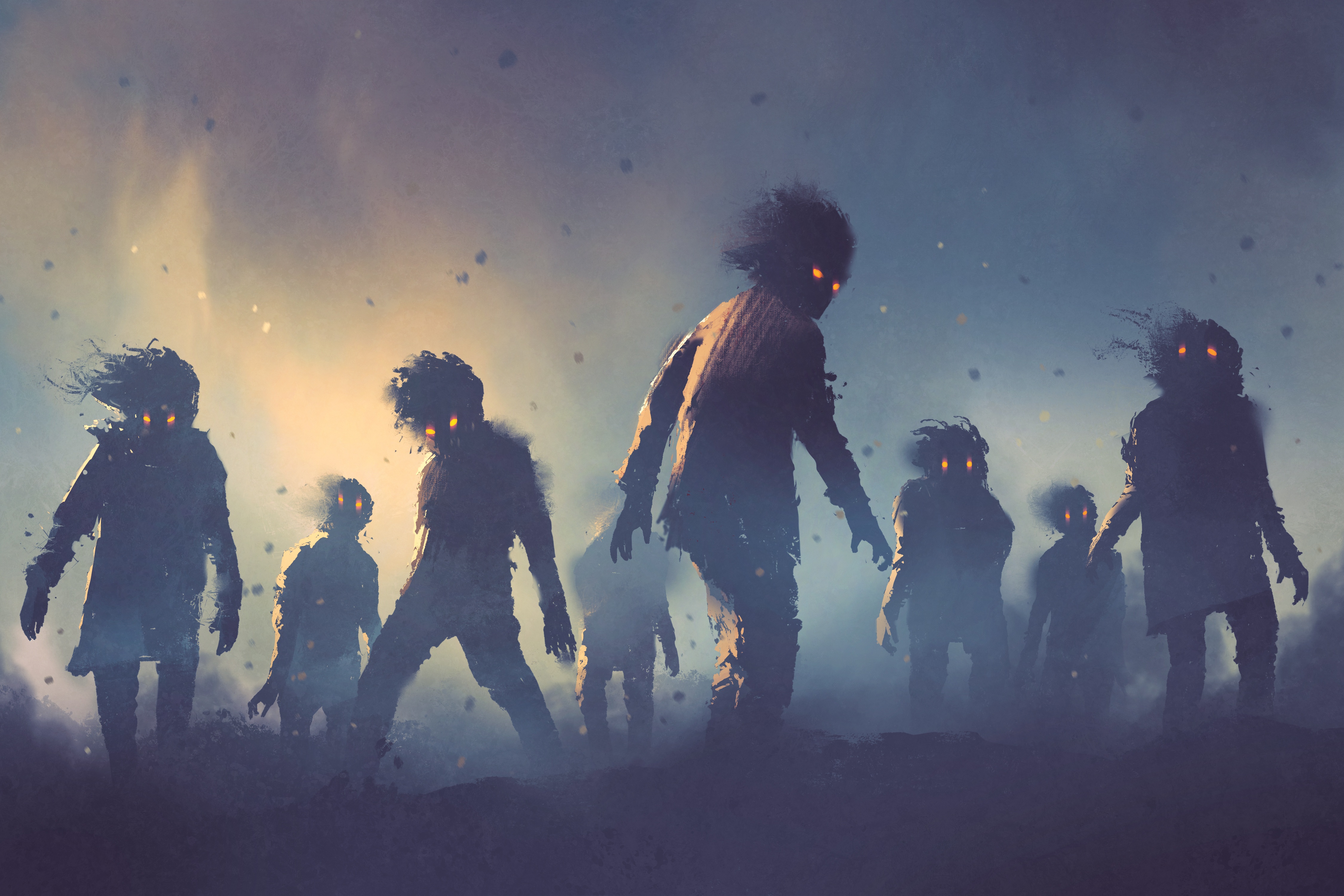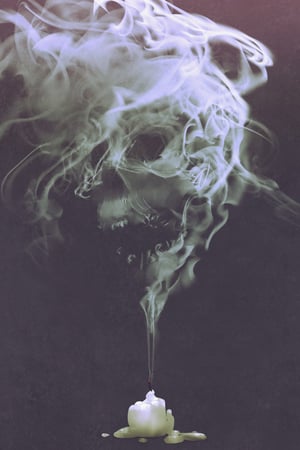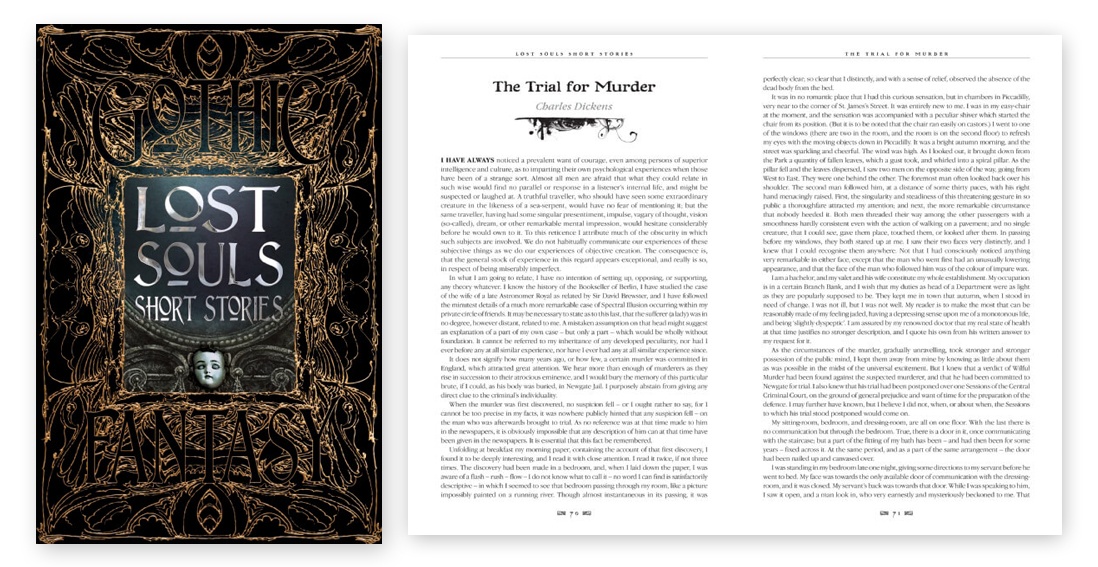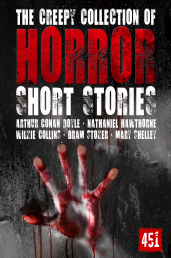Last week saw authors from our upcoming Lost Souls anthology reveal the inspirations behind their story in the book. The collection, due to make its appearance in the world in the next couple of weeks, complements the selection of new writers with classic masters from the genre such as M.R. James, F. Marion Crawford, Mary E. Wilkins Freeman and more. In this second part of the Author Q&A, we asked authors from the anthology to share which existing ‘Lost Souls’ tales they like best, and what sorts of processes they use to produce their own work:

What are your favourite stories from this genre?
My story in this collection ('Perfect Mother') definitely owes a debt to Pet Sematary, which I read when I was entirely too young for it and which left a pretty deep and creatively useful scar. I'm also a big fan of Mary Shelley, Stephen Graham Jones, Gemma Files, Paul Tremblay, Victor LaValle, Carmen Maria Machado, and Shirley Jackson. I'm not sure anything more frightening than Stephen Gammell's illustrations in the Scary Stories to Tell in the Dark series has ever been commercially distributed.
I recently judged short fiction for the Australian Shadows Awards and there were some standout short stories by Australian authors. 'Outside, a Drifter' by Lisa L. Hannett, 'The Hand Walker' by Rue Karney, and 'The Banksia Boys' by Matthew J. Morrison come to mind. Perfect Little Stitches and Other Stories is a collection of great horror short stories by Deborah Sheldon that won the award for ‘Best Collected Work 2017’ and is well worth a read.
It's got to be the film The Haunting – the 1963 Robert Wise-directed original, of course, not the atrocious remake! It's the ultimate proof that horror can be utterly terrifying without stinting on character or artistry. There's a famous scene that will always make my skin crawl however many times I see it – though arguably nothing actually happens! – but the film as a whole is a masterpiece of atmosphere-building and audience manipulation.
I’ll tackle only (mostly) recent literature for this, or we’ll be here forever: Sonya Taaffe and A.C. Wise’s entire bodies of work come to mind. Maria Dahvana Headley at both short form and novel length. Victor LaValle’s The Ballad of Black Tom and The Changeling, among others. Marjorie Liu and Sana Takeda’s comic series Monstress. Everything Banana Yoshimoto writes (addressing both lost souls and connection). Rin Chupeco’s The Girl from the Well. For a start.
While I'm not sure they can all be considered of this genre, here are some of the works that have haunted me, which for me carry some of the 'feel' of my piece: Rebecca by Dame Daphne du Maurier, and the 1940 film adaptation with Joan Fontaine and Laurence Olivier; The Electric Grandmother TV movie with Maureen Stapleton from 1982, and the Ray Bradbury story it's based on; the 1970s Telegeneral LP record adaptations of Let's Pretend, especially 'Bluebeard' and 'The Juniper Tree'; The Changeling (1980) with George C. Scott; The Uninvited (1944) with Ray Milland and Ruth Hussey; The Yellow Wallpaper by Charlotte Perkins Gilman; and many more!
There’s a glut of excellent short fiction right now, so I can’t name one story without leaving a hundred out. But folks looking for modern horror and dark fantasy can’t go wrong with magazines such as Nightmare, Apex, Pseudopod, and The Dark. That said, focusing on the historically-rooted, supernatural, and utterly unnerving, I strongly recommend Kai Ashante Wilson’s 'The Devil in America', published at tor.com. An absolute masterpiece.
Alexandra Renwick

Hah! The Disappeared-Vikings-Bleak-Blood-Sacrifice genre? I loved Jane Smiley's The Greenlanders, which paints a haunting, deeply fascinating picture of the Norse decline there. For 'A Good Thing and a Right Thing' I also studied Norse sagas, and various translations of the Poetic Edda, which is the oral literature of Iceland written down and collected circa 1000 to 1300 CE and a primary text for modern understanding of ancient Norse pagan beliefs. With these particular lost souls, the actual history is as gripping and eerie and powerful as any fiction (try Science Magazine or The Smithsonian). Also, I don't know… History Channel's The Vikings? I love me some good Viking.
Can you tell us a little about your writing process?
Lucy A. Snyder
I do a lot of pre-writing inside my head before I begin a story. I'll think about my characters, plot and themes for days, perhaps weeks, and then sit down and write the story in as close to one sitting as I can manage. I'm a binge writer, so I set aside large blocks of time to work on my fiction. Most of the time, a story only needs a basic editing pass to fix typos and flesh out thin spots before I send it out. If a story needs a major rewrite, it's because I didn't sufficiently think things through before I started.
Jessica Nickelsen
These days I’m trying to generate material ‘on demand’ more and more, and so I keep a notebook where I have odd conversations with my ‘muse’. I let her ramble, and often then freewrite a bit before I try to lock it all down and apply some structure. I’m getting better at cutting and throwing away, which was difficult for me when I was younger. I write with pen and paper when I’m stuck, but on the computer I've recently moved back to Scrivener after a dalliance with Ulysses.
J.A.W. McCarthy
I do most of my writing on nights and weekends, at home on the couch with my laptop and the music turned up. I try not to edit much as I write the first draft – I keep telling myself I just need to get the story out – but I always find myself going back to an earlier part to add a new detail that came to me in the shower or while driving to my day job. That’s when I get all of my ideas too, along with when I’m trying to fall asleep at night.
C.R. Evans
I tend to try to write everything in one go, which is why I’ve stuck to short stories so far. I initially wrote the ending of this piece ('Shut-In') first, then much later added the opening and setting. It originally took place in one room with one character and no description or context. Going back and adding to a story while knowing where it ends is much easier for me than starting at the beginning. I work on an outdated tablet, so that I can’t switch programs easily and get distracted. I also have a set list of albums that work well for me when writing, generally soundtracks.
Aeryn Rudel
I'm pretty regimented, and I often write to an outline, even with short stories. On longer works, like novels, I'm a big fan of word count goals, and I shoot for 2,500 words a day. That usually gets me a novel-length manuscript in about three months. I edit after I finish the entire manuscript, be it novel or short story, though I will leave myself notes if I run into issues that need to be addressed in revision/editing.
Rachael Cudlitz
I am not the least bit organised when it comes to writing. I write in fits and bursts with a lot of 'musing' in between. I muse best when walking or listening to music. Music is very inspirational to me. I live in Los Angeles, so I spend a lot of time in my car listening to music. Believe it or not this is where a lot of my stories come together. When I’m stuck on a scene or need inspiration, I play a piece I feel fits the action in my head and 'see' the story play out like a movie. 'For Some Souls Stay' it was The Violet Hour by The Civil Wars. When I hear it I see the woods, the girls and of course the soft footsteps of the murderer closing in.
Michael Penncavage
Since I am not a full time writer I try to keep a strict writing schedule. I try to write 2 hours every night, usually 9-11pm. I am a slow and steady writer, usually writing 500-1000 words which allows me to complete one novel per year, on average, and also allows for other writing as well such as short stories.
Cant wait to get your hands on the book? Lost Souls is available to pre-order through our website here.

Links
- Missed the first part of the Lost Souls Q&A? You can read it here.
- For the full list of authors included in this volume, see here.
- Browse the rest of our Gothic Fantasy anthology series here.




